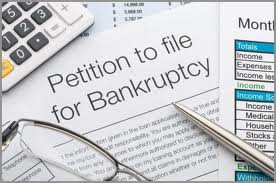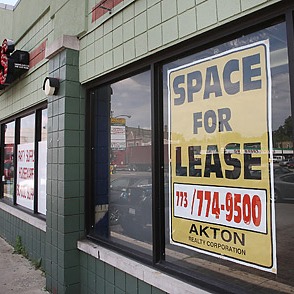 Just more than 40,000 U.S. businesses declared bankruptcy in 2012.
Just more than 40,000 U.S. businesses declared bankruptcy in 2012.
That number is a staggering figure to be sure, but a sharp drop from the 2009 peak of 60,837 during the worst of the so-called Great Recession.
Although the economic climate has improved considerably since 2009, 40,000 business bankruptcies constitute a fairly ominous statistic, representing the dashed dreams of American entrepreneurs, both big and small.
Business Failures Inevitable
Whether the economy is robust or on its knees, businesses will continue to rise or fall depending on a wide variety of variables.
If youÂre a small business owner whose debt load is swiftly becoming unsustainable, then you may find yourself facing the very real possibility of insolvency. Under the protection of the bankruptcy court, a business can be reorganized or its assets can be liquidated to satisfy creditors.
Although bankruptcy in theory holds out the promise of a Âfresh start for the owners of failed businesses, a business bankruptcy filing can severely damage the credit score of the business and its principals, making it difficult, if not impossible, to access financing at reasonable rates in the short-term future.
Bankruptcy = Hefty Legal Bills
Another adverse consequence of bankruptcy is the substantial legal bill incurred during the process of filing for protection under the bankruptcy code. And bankruptcy will not wipe out tax liabilities, which can continue to haunt the owners of failed businesses for years to come.
In the case of companies that seek to reorganize under the protection of the bankruptcy statutes, in so doing they cede control to a bankruptcy court judge or trustees who will have the final say in all company-related decisions during the reorganization process.
If as a business owner, you see signs that your company is in imminent danger of failure, what other options do you have besides bankruptcy?
Attorneys Lei Lei Wang Ekvall and Evan D. Smiley, authors of ÂBankruptcy for Businesses, a legal guide published by Entrepreneur Magazine, discuss two common alternatives to bankruptcy for businesses that find themselves in financial distress.
Negotiating a Workout
Under the first alternative — an out-of-court workout — the business owners seek to resolve their financial problems with creditors without relying on a court to preside over these negotiations.
Needless to say, the success of such negotiations hinges primarily on the willingness of your businessÂs creditors to engage in such talks. For this reason, it would probably be prudent to initiate such discussions before creditors have become intransigent because of prolonged failure to pay bills.
To effectively avoid bankruptcy, this financial workout should seek to win the cooperation of all creditors.
Should one or two major creditors refuse to join the talks, the business owner is likely to be forced to take the bankruptcy option. The business owner must also come up with a viable plan that ensures creditors they will eventually be repaid if they agree to cooperate.
This first alternative to bankruptcy presupposes that the businessÂs owners believe they can regain their footing and resuscitate their business if creditors allow them to set up a less arduous debt repayment schedule.
In other cases, business owners may fully realize that their company is beyond the point of salvage but still wish to avoid recourse to federal bankruptcy court.
Second Alternative
Assignment for benefit of creditors, the second alternative to bankruptcy advanced by Wang Ekvall and Smiley, is designed for cases in which liquidation appears to be the only course of action left for a failing business. Although such assignments require court intervention, they are overseen by state courts and not the federal bankruptcy court.
Under an assignment, the faltering business selects an assignee — an appointment sometimes subject to creditor approval — who then oversees the liquidation of the failing businessÂs assets, subject to state laws covering such procedures.
If the liquidation produces sufficient cash to reimburse all creditors and cover the assigneeÂs fees, any leftover funds can be returned to the businessÂs owners or shareholders.
In the event you have filed for bankruptcy tied to your small business, what was the outcome? Have you been able to get back on your feet with a new business venture?
Photo credit: thelaw.tv
About the Author: Jay Fremont is a freelance author who has written extensively about personal finance, corporate strategy, business education, and career degrees in business.
